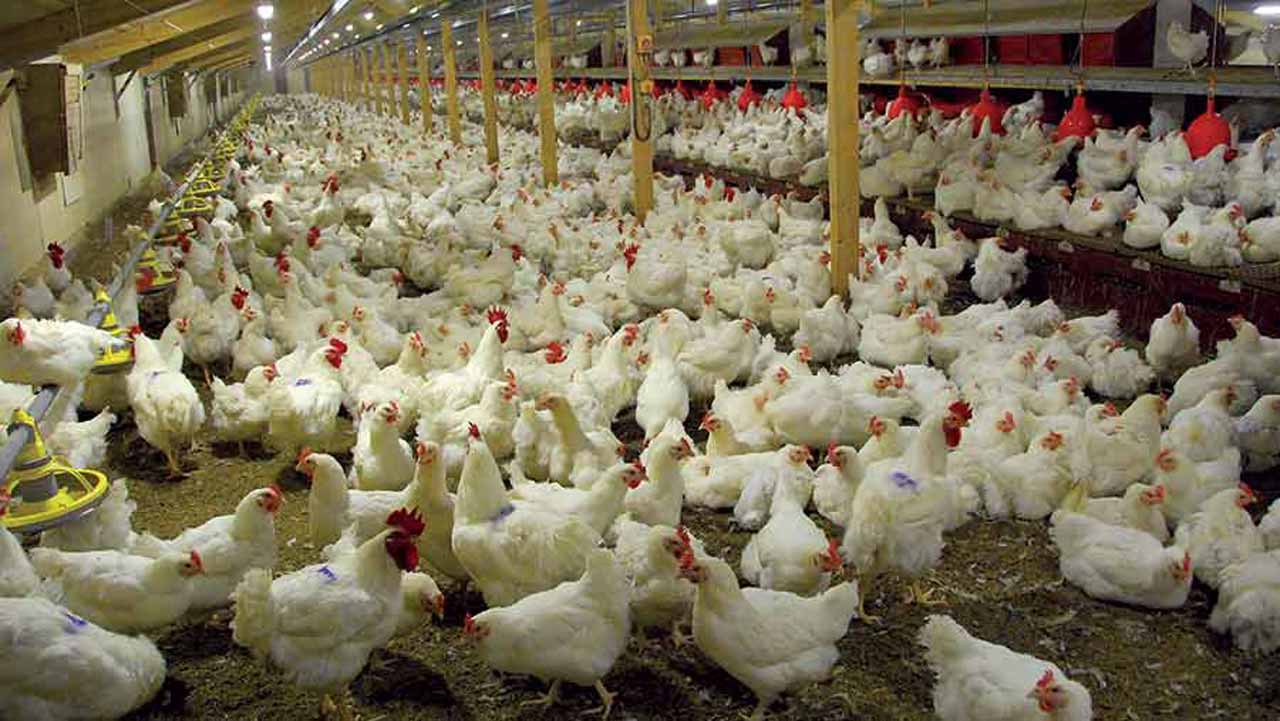
• Lagos Farmers Happy, Lament Customs’ Compromised Borders
• Spike In Demand For Locally Processed Frozen Products
• Mixed Feelings For Farmers In Ogun • Marginal Boom In Edo – Kingsley
It was a case of different strokes for different players in the poultry industry during the festive season. While some smiled to the banks with high proceeds, it wasn’t so for others, as they struggled to sell off their stock at give-away prices, to manageably realise their investment. Despite the border closure, which has positioned the industry to function at almost full capacity, investigations showed that many farmers confronted series of challenges during the period, as some still have sizeable unsold stock.
Prior to the border closure last August, about 70 percent the two million metric tonnes of poultry meat consumed locally were smuggled into the country, which threw local farmers into distress, with some shutting down.It was learnt that as a result of the closure, local farmers have been able to produce one million metric tonnes of poultry products, a development that has seen the revival of the almost-moribund industry.
While attesting to this development two weeks ago, the Nigerian Institute of Animal Science (NIAS), said the sector has raked in about N50b between August and December, and also created many jobs. The Registrar of the Institute, Prof Eustace Iyayi, who disclosed this in Abuja, said the closure of the borders has not only created market for locally-produced poultry, but also created jobs.He added that if the one million metric tonnes of chicken prevented from being smuggled into the county were produced in Nigeria, an equivalent of 100,000 jobs would be created along the broiler and turkey production.
Iyayi said the impact on the poultry industry has created a multiplier effect along the value chain such as inputs supply, storage facilities, transportation/logistics and value addition.Said he: “The huge impact could grow exponentially, and transmit to more concrete economic gains and accelerated growth if the industry, beyond the current estimated annual growth rate of 3.3 per cent is able to take control of the local market and align more with global best practice to compete with the export market.”
Chairman, Lagos State Chapter of Poultry Association of Nigeria (PAN), Godwin Egbede, confirmed to The Guardian that farmers were happy during the period, as they raked in so much money.He, however, said towards the Christmas festivities, men of the Nigeria Customs Service (NCS) compromised again. “Based on feelers we got from Ijora, a lot of smuggled chickens and turkey also entered the country. On the overall, at least the farmers were happy, even chickens were sold off before Christmas.
“Giving data of what was sold and the money realised is a bit difficult now, but I just know that farmers made more money. Whatever figure quoted by anybody on what has been raked in, may be an assumed figure, but certainly because of the border closure the poultry industry performed well in Lagos State, I don’t know of other states yet. You know Lagos is the base of other smuggled products and majority of the products are also bought in Lagos.
“I have always been advocating that the Federal Government should empower farmers. If the farmers are empowered we can sell at reasonable price and smuggled chickens will fizzle out on their own, but because of our high cost of production, the ones they are importing are cheaper than what we produce locally and that is the problem.”He appealed to government to empower the farmers, to enhance the capacity of the industry. “All these money being spent on border closure should be channeled to empower farmers. Give them loans at single digit, maybe two to three per cent, with that nobody will be interested in buying smuggled poultry products because they know the imported chickens are killing them, it’s actually killing our people gradually. Go to the hospitals and take census of children with kidney problems and the likes, all these are as a result of chemicalised food they are eating, its affecting everybody, except few people that know what they are doing.”
Chairman of Lagos State chapter, All Farmers Association of Nigeria (AFAN), Femi Oke, also attested to the success recorded in the poultry industry and agric sector generally, since the border closure.He said the continued closure of the land borders had yielded positive results, adding there was a boost in farm produce across all major value chains.He said that poultry, aquaculture and rice farmers witnessed huge patronage in 2019.
Founder of Menitos Farms, Tolulope Daramola, said sales of poultry produce was good, as the demand for locally processed frozen chicken from her farm and others made a huge difference. “In fact, we exhausted our table size chicken ahead of the big ones traditionally raised for festivities.”Also, in Ogun State, The Guardian learnt that farmers make brisk money through sales of chicken and turkey. The locally produced birds were used to fill the huge gap created by the absence of smuggled poultry products through the Idiroko border.One of the farmers, Moshood Adewale revealed that the development is capable of making the country exporter of poultry products if necessary assistance is given to farmers to build their capacity and confidence to grow the industry.
But in some areas like Ifo, Arigbajo, Itori, Papalanto, Gudugba, Sango and others, majority of the farmers and dealers still have unsold birds, as they complain of low patronage.The scenario in Edo State is different, as only a sizeable fraction of farmers made good sales within the period.
Chairman Edo State Chapter of PAN, Imasuen Kingsley told The Guardian: “Here in Edo, there are some farmers who couldn’t sell their chickens during the festive season. The issue here is that the state and Federal Government partnered to assist poultry farmers, with incentives in form of loans and others. One of the challenges was that when those who received assistance from government crashed the prices of their birds, it greatly affected other farmers who invested heavily, leading to loss of revenue.
“What we actually need here is a processing trunk, once we can process these birds, put them in cold rooms things will be better for us. This idea of going to the market to buy fowls and they de-feather and process them there is an obsolete method some countries no longer do this, we cannot continue that way and think of breaking even.”






